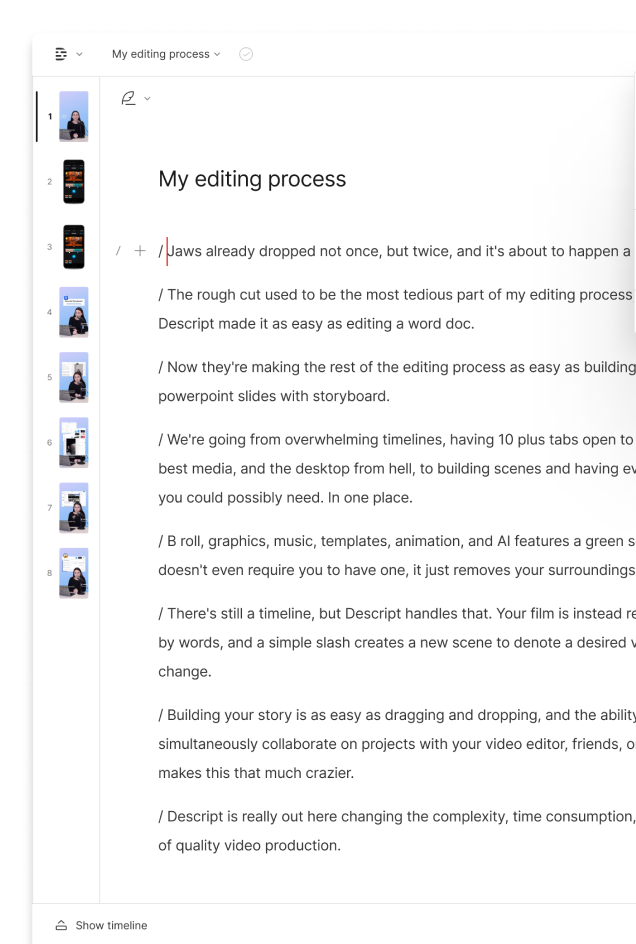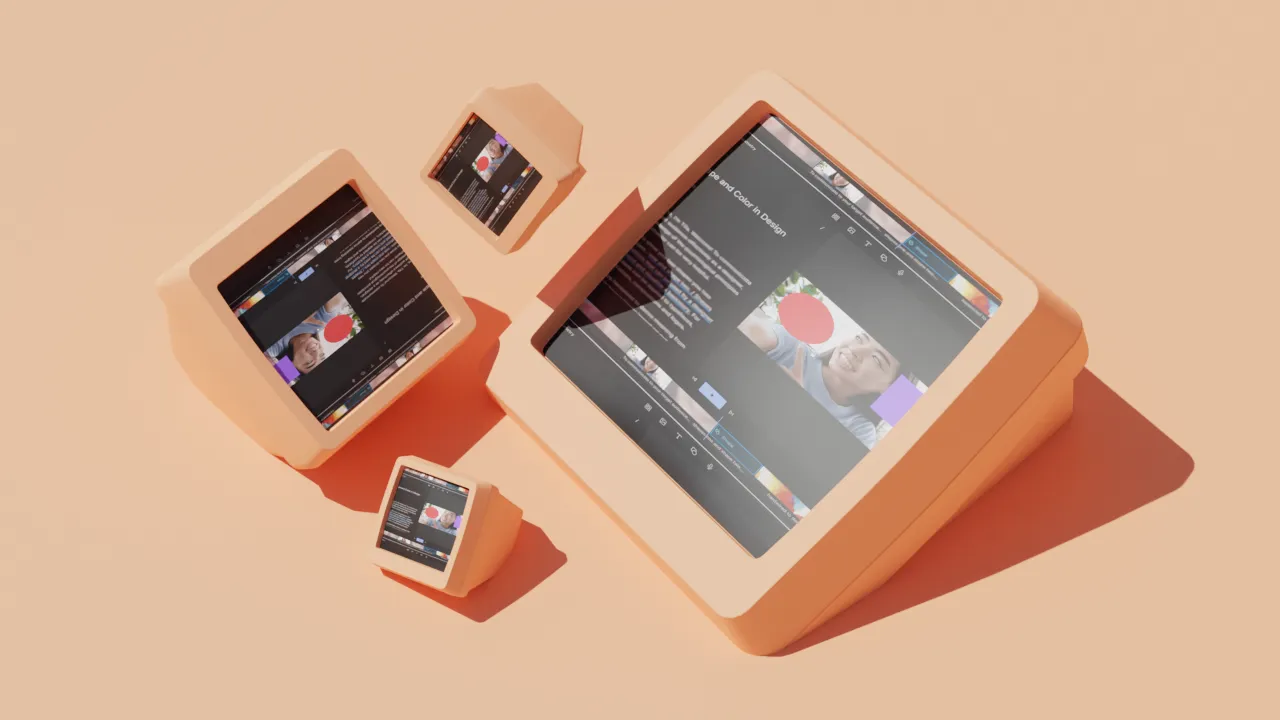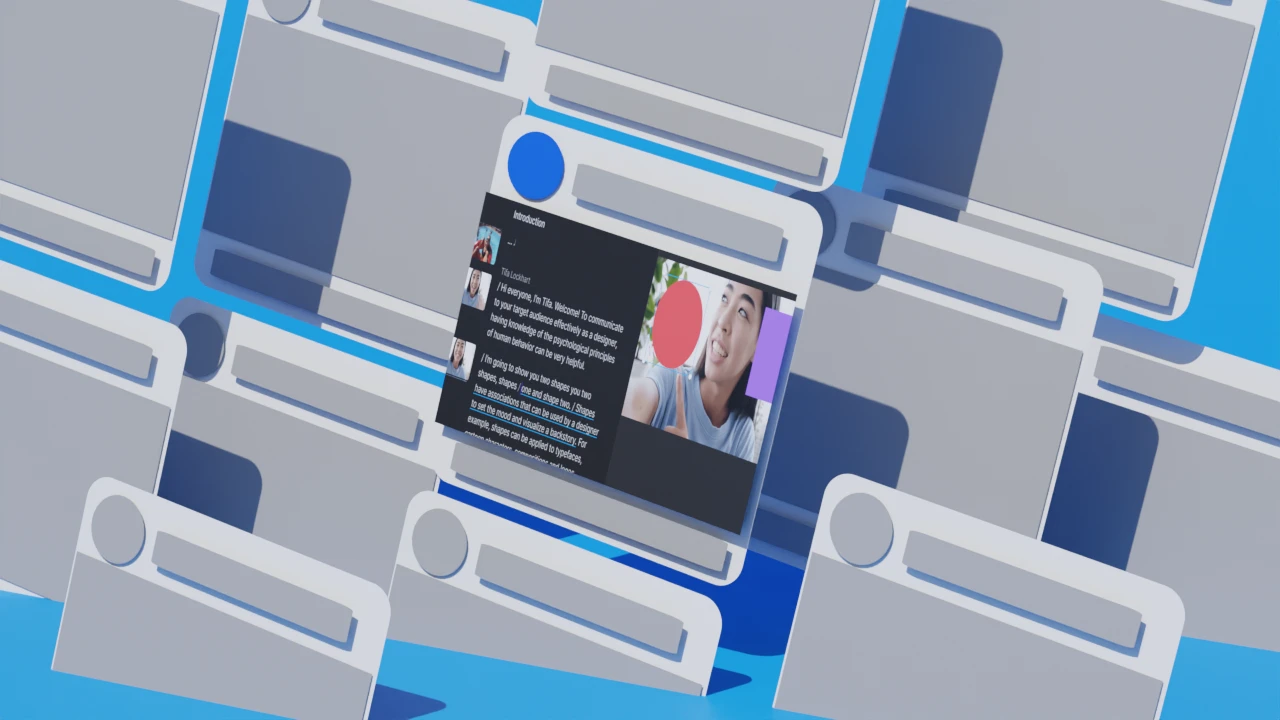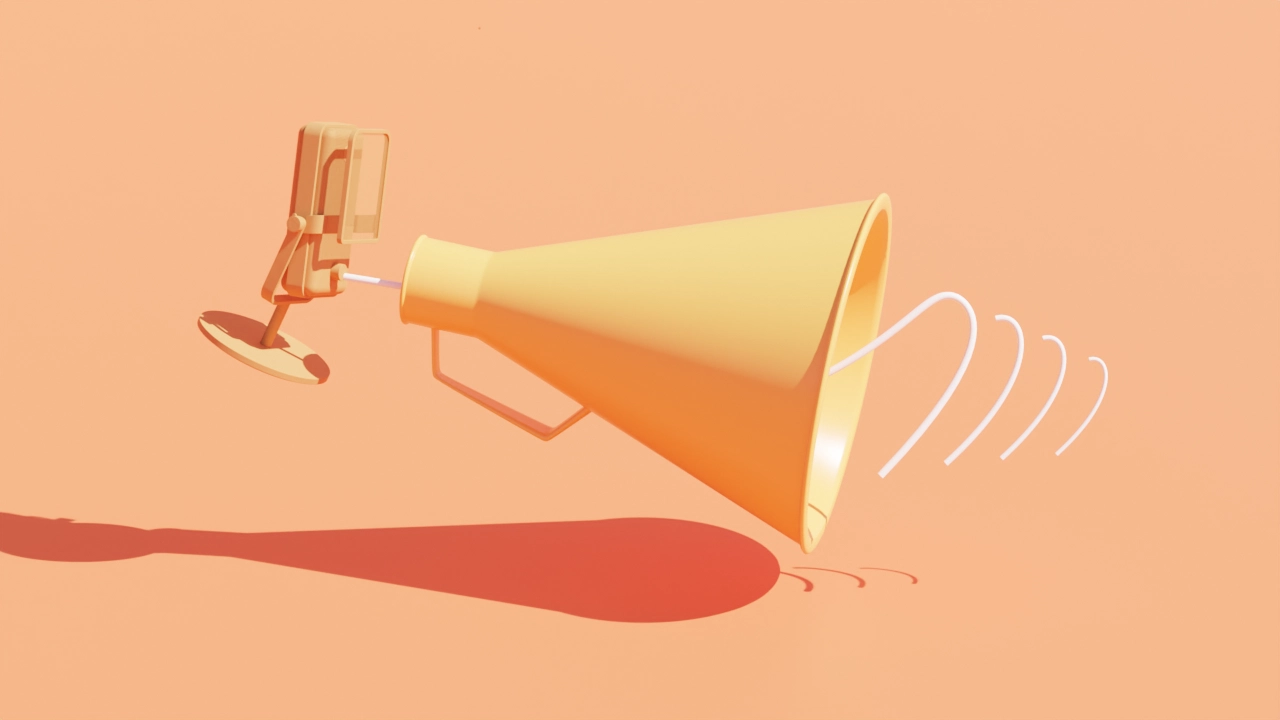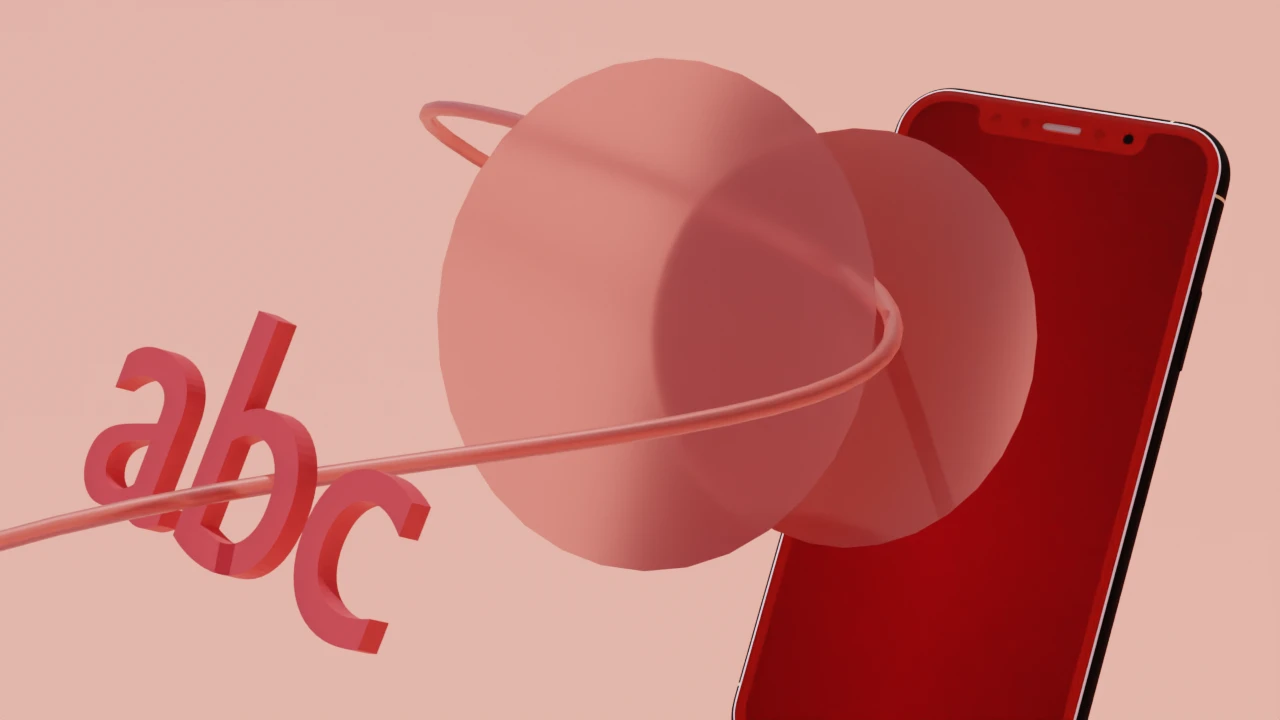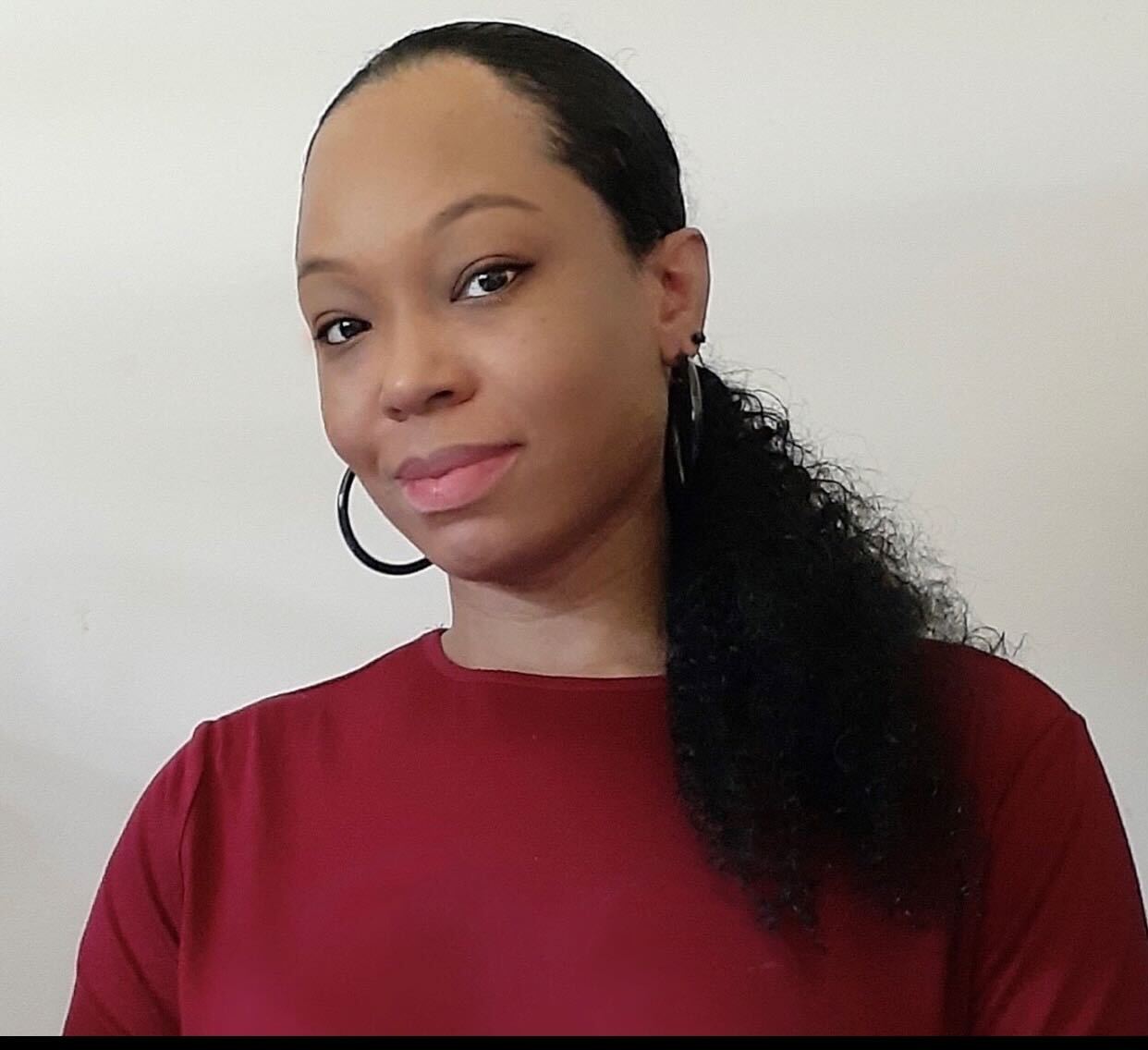What type of content do you primarily create?




You’ve got a long list of engaging podcast topics, a steady stream of well-performing episodes, and a large, loyal audience. Your podcast is finally getting traction, and now you want to turn your effort into income.
It’s easy to assume that turning your podcast from a hobby into a profession that makes actual money will be simple. In reality, it takes a fair bit of hard work and unpaid hours before those first dollars roll in.
Fortunately, if you’ve powered through the initial stages, you already have a head start—and a good chance of success.
Whether you’re aiming for a few dollars a month or want to build a podcast empire, this guide explains how podcast monetization works and the most effective ways to make money with your podcast.
How does podcast monetization work?
Unlike YouTube monetization, which comes from a central authority (YouTube) and only kicks in at a precise number of subscribers and watch hours, podcast monetization can come from many sources and has no hard and fast rules.
While when and how you monetize is based on your listenership and/or number of episode downloads, there isn’t a single number that determines when dollars come rolling in. But there are some numbers that can help you determine how much you can make from a podcast through ad placements and sponsorships.
The prices you set will depend on several factors, like average advertising rates, audience size, niche, and the number of ads you include per episode.
Revenue will also vary, depending on your podcast monetization strategy. For instance, sponsors and advertisers typically pay based on cost per thousand downloads, or CPM.
According to AdvertiseCast, the average podcast CPM rate is $18 for a 30-second ad and $25 for a 60-second ad. You can charge within this range or more, depending on the popularity of your podcast and the number of downloads per episode.
Direct and indirect podcast monetization
Direct monetization is when your podcast is the product and you receive payment for the content you produce—or, more precisely, the ads you run within the content you produce. Some direct monetization methods include brand sponsorships, advertisements, and listener donations.
For example, if your podcast topic is about fitness, you can get sponsored by a brand like Athletic Greens and run ads on your show.
Indirect monetization involves promoting or selling different products and services to your podcast listeners in exchange for sales or a commission. If you’re doing a podcast on running, for instance, you can sell your own branded merchandise, like t-shirts and water bottles, or promote another brand’s footwear for a percent of the profits.
The most successful podcasts make money through a combination of direct and indirect monetization methods. With these definitions down, let’s explore the most effective ways to monetize a podcast and turn your content into cash.
9 effective ways to monetize a podcast
There’s no exact formula for podcast monetization, but you can experiment with several strategies to see what works best for your business and audience.
Here’s how to make money with a podcast.
1. Leverage sponsorships and advertisements
The Edison Research Podcast Consumer report shows that 46% of weekly podcast listeners in the US are receptive to podcast ads and have purchased a product or service after hearing one.
So, it’s no surprise that podcast sponsorships and ads are among the first income streams podcasters explore when looking to monetize their shows.
Sponsorships are commercial messages often read aloud by the podcast creator during a show and directly endorse a brand. They’re typically one to three minutes long and are suitable for podcasts with bigger listenerships.
Ads are shorter commercial messages, typically 30 to 60 seconds long, created by the brand or advertiser, and are either announcer-read by the brand’s own signature voice or host-read by the familiar voice of the podcaster. Host-read ads generally perform better than announcer-read ads, since it’s from a personality the listener already knows and trusts.
Ideally, sponsors and advertisers offer products relevant to your podcast listeners. To ensure your podcast is a great fit, they’ll want to know:
- How many listens or downloads you have
- Who your audience is
- Why your audience would be interested in their brand
So, if your audience is interested in books, for example, you can partner with a brand like Audible. Or, if you’re in the entrepreneurial space, you can partner with Shopify, just like Marques Brownlee does on his WVFRM Podcast:
It can be difficult and time-consuming to manage content creation and secure sponsorships and advertisers, particularly if you’re just starting out. Some podcasters mention the brands they already love and use during their shows to get their attention and start an initial relationship.
A quicker way to find advertising and sponsorship deals is to join a podcast advertising network like AdvertiseCast.
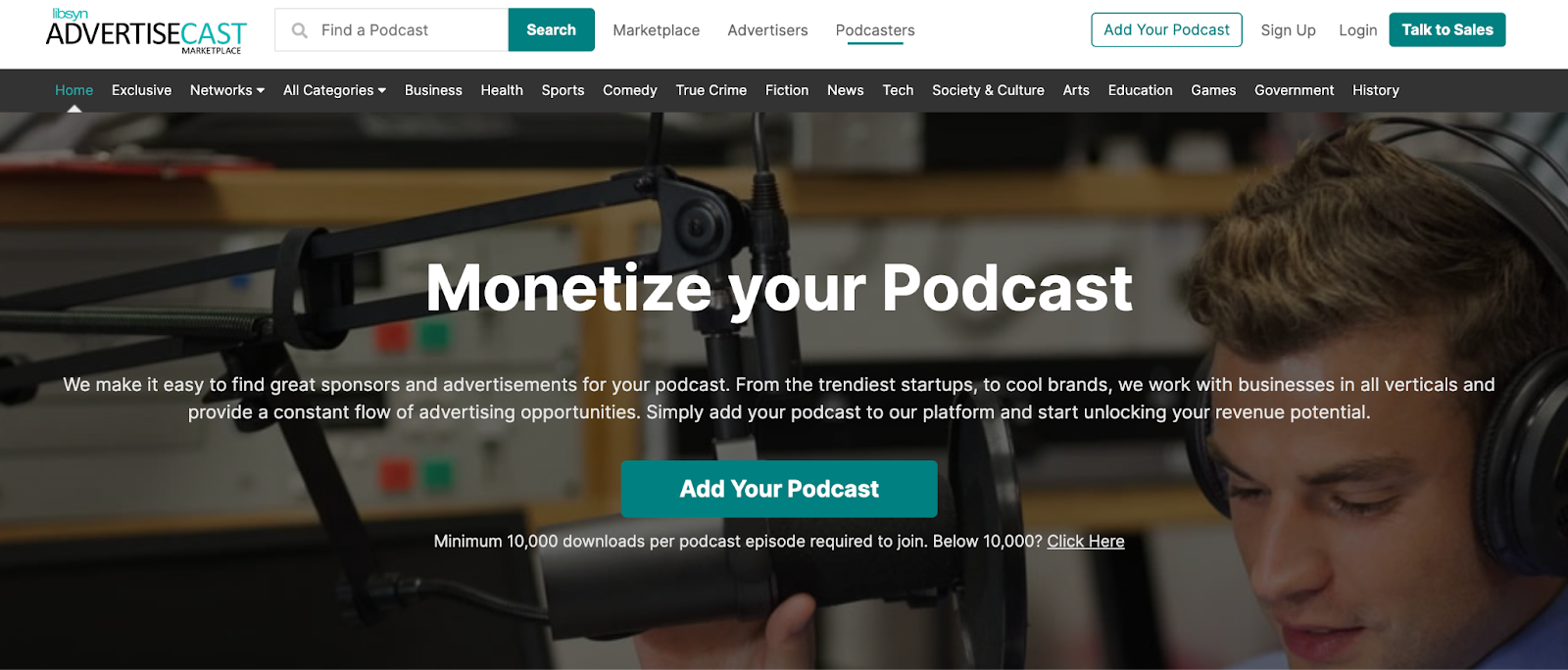 |
Podcast networks like these act as your podcast agent, helping you land opportunities you may not otherwise have found on your own, in exchange for a cut of your ad revenue. You’ll need a minimum of 10,000 downloads per episode to join AdvertiseCast, and other networks have similar minimums.
2. Embrace affiliate marketing
Affiliate marketing is a proven way of making money from a podcast, and a great option for smaller shows that haven’t reached the 10,000 download-per-episode mark.
Companies looking to grow their customer base offer affiliate programs and pay a commission per sale.
Here’s how it works:
- A company gives you an affiliate link or code to promote to your listeners.
- You insert the product name and your affiliate link in the description section of each podcast episode.
- A listener clicks your link and buys the product.
- The company pays you a commission for marketing their products.
Say, for example, your podcast is about audio gear, and you’ve invited an expert to speak on the best Bluetooth microphones. After recording an episode, your interviewee, who sells microphones, extends an opportunity for you to be an affiliate for their product, then gives you 5% from each sale.
The brand will give you a unique promo code, like https://www.affiliatecompanyname.com/yourpodcastname to share with your listeners and use to track signups. You can add the link or code to your podcast episode description box and promote it in your shows.
Then the microphone brand will let you know how many people signed up and made purchases using your code, and pay you a percentage from each sale.
To get started with affiliate marketing:
- Pick a specific niche your podcast caters to.
- Research and find affiliate programs in that niche.
- Select a product or service you’ve used or genuinely believe in that will provide value to your podcast audience.
- Create engaging ad spots to promote the product or service on your podcast and add affiliate links to your podcast website, social media pages, or show notes.
- Track your earnings to determine the effectiveness of your promotion efforts, so you can adjust your marketing strategy and optimize earnings.
3. Encourage listener donations and crowdfunding
If you want to offset the costs of producing each episode or invest in better podcasting gear or an editor to make your audio content more professional, you can ask your listeners to donate, either directly or via crowdfunding.
Through popular crowdfunding platforms like Patreon, you can encourage listeners to sign up and tip you or make monthly donations. Then, you can collect the donations via platforms like PayPal, Venmo, or GoFundMe.
Promote your crowdfunding page in your podcast and add a link to it in your show notes and podcast website. That way, listeners can find the link and donate. Alie Ward has a thriving Patreon community for her podcast Ologies, and promotes it on every episode:
 |
You can also set up fan-funding streams to source donations from your listeners on fan-funding sites, like Buy Me a Coffee. These offer content creators extra avenues to have their content discovered by people, and reward them for their support.
Here are a few best practices to follow when crowdfunding or fan-funding:
- Be transparent about where the money is going: Clearly communicate how you plan to use or spend the funds. For example, getting a new mic for better sound or hiring an intern to ramp up production.
- Create partner-only perks: Encourage listeners or fans to make recurring donations or better pledges by creating enticing perks or rewards. For example, exclusive Q&As or early access to upcoming episodes.
Here's an example to illustrate how it works in real life:
James Acaster, a well-known UK comedian and co-host of the Off Menu podcast, launched a crowdfunding campaign through Kickstarter for Springleaf—a 10-part scripted comedy podcast series.
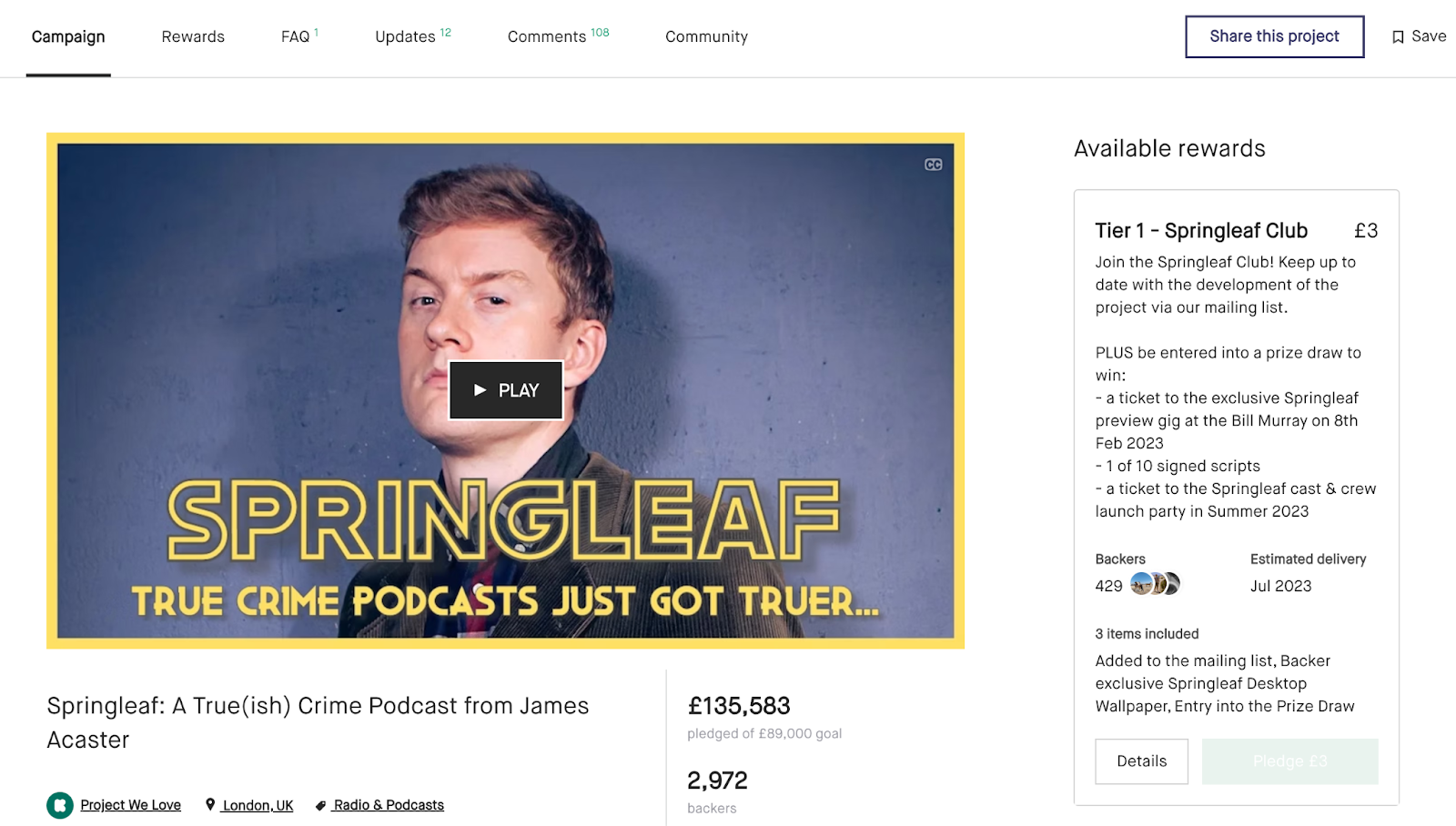 |
Acaster offered different tiers, with rewards including exclusive video downloads; signed scripts; tickets for online events, in-person gigs, and the launch party; and more.
Listener-supported podcast monetization leaves you at the mercy of your listeners’ good graces, so the income isn’t stable. But if you build a community that loves you and your content, and want you to continue creating it, they likely won’t have a problem supporting your show.
4. Implement subscription models
Paid subscriptions and one-off payments are bonus revenue streams for your podcast and help you build a stronger relationship with your listeners.
When starting out, it’s easy to assume that your listeners won’t pay for something they already get for free. However, a survey by Morning Consult found that 30% of frequent podcast listeners subscribe to a paid podcast service and will pay for premium, exclusive content—provided they get value from it.
You can create exclusive content and make it available only to listeners who subscribe using formats like:
- Ad-free episodes: Subscribers get premium versions of your content in your RSS feeds, but without ads.
- Paid shows: Only subscribers can access paid shows. You can make a few episodes available to all subscribers or restrict access on all episodes to paid subscribers.
- Extra episodes: Paid subscribers get episodes before they’re made available to everyone else.
- Archive access: Subscribers can access episodes that are no longer available to non-paying listeners.
Offering premium content behind a paywall helps you earn from your efforts and gives your most dedicated listeners bonus episodes from their favorite creator.
As you start out, subscription payments might be small and unpredictable, so it’s best to treat them as a nice-to-have rather than a consistent income source to build your podcast business around.
That said, subscriptions can hedge your business against ad and platform fatigue. You can go for the ads you want without worrying about getting shut off by a platform.
A few tips to help you get started with podcast subscriptions:
- Focus on your biggest fans: Hone in on listeners with a strong affinity for you—they are your target market.
- Understand why listeners appreciate your podcast: Understand your super-fans’ preferences to build your brand and price based on them. For example, audiences willing to pay for the Joe Rogan Experience podcast love the deep thinkers and controversial guests Rogan hosts on his show.
- Offer some rewards or perks: Provide value and sweet rewards to your subscribers, like a priority line for subscribers to call in during a live show. It’ll boost your revenue and strengthen the connection between you and your listeners.
Several podcast platforms offer built-in subscription options for podcasters, including Spotify and Apple Podcasts.
5. Sell merchandise and products
You can also sell branded merchandise with your podcast’s logo, signature phrases, or iconography.
This is a fun way to bring a visual aspect to your podcast, get great advertising for your show, and make money. Besides, your diehard fans would probably be interested in buying merch related to your show, which gives them another way of connecting with you and your podcast.
Some novelty items you can offer include t-shirts, stickers, mugs, caps, books, or even online courses, and you can sell them on online marketplaces like Amazon, Etsy, or Shopify.
Ear Biscuits’ merch is a prime example of how to create branded merch for a podcast. The brand shows products from its online store on YouTube under the Store tab. So if someone is watching a video podcast episode on YouTube, they can pop over to the store to buy branded merch easily.
 |
6. Organize live shows and events
An in-person live event and livestream gives you and your audience a chance to connect and interact. You can sell tickets to the event and use sponsorships or ads to monetize your episodes when you upload them for regular listening.
Podcast But Outside is a great example of a podcast succeeding with live shows and events. The podcast hosts go on tour and host live events, where their audience can buy tickets and experience the show in real life.
 |
You can run a live Q&A session, an exclusive interview with a guest, or give your audience a behind-the-scenes look at your show.
7. Offer online courses or workshops
Offering online courses, workshops, or coaching services is a great way to earn from your podcast, particularly if you’re a subject matter expert in your niche. And if you’ve been podcasting about a topic for a while, rest assured that you’re an expert in that topic.
Leverage the demand for your industry knowledge to create digital courses, webinars, workshops, or coaching sessions tailored to your audience. Then, promote them during your shows to drive more sales.
Pat Flynn, for example, teaches listeners everything they need to know about earning money on his podcast, Smart Passive Income.
 |
He uses his podcast to grow his audience and eventually upsell them into buying one of his many courses, or signing up for his membership community, SPI Pro.
 |
8. License and syndicate your content
You've worked hard to create great content for your listeners. But the engagement levels and download numbers aren’t where you’d like them to be.
Content syndication and licensing is a cost-effective way to get those numbers up. Done right, it can boost awareness about your podcast and improve search engine optimization (SEO).
One way to license and syndicate your content is through targeted placements on industry-specific forums, communities, or websites where your audience hangs out.
You can also publish your podcast episodes on YouTube to grow your audience, then monetize your channel through YouTube Ads, merch, or premium content subscriptions.
9. Monetize through speaking engagements
Once you’ve gained a dedicated following of people who trust your expertise, you can monetize that reputation by getting paid to speak at events. Many speakers can earn tens of thousands of dollars per speaking engagement, so this can be a very lucrative option.
But start small: research meetup groups in your area that might benefit from your expertise, and give a talk or two there to gauge the reception and fine-tune your delivery. Then, pitch larger events with larger budgets, and charge them accordingly.
Danielle Desir Corbett is a podcaster who uses several monetization approaches: podcast sponsorships, private coaching, courses, and speaking engagements:
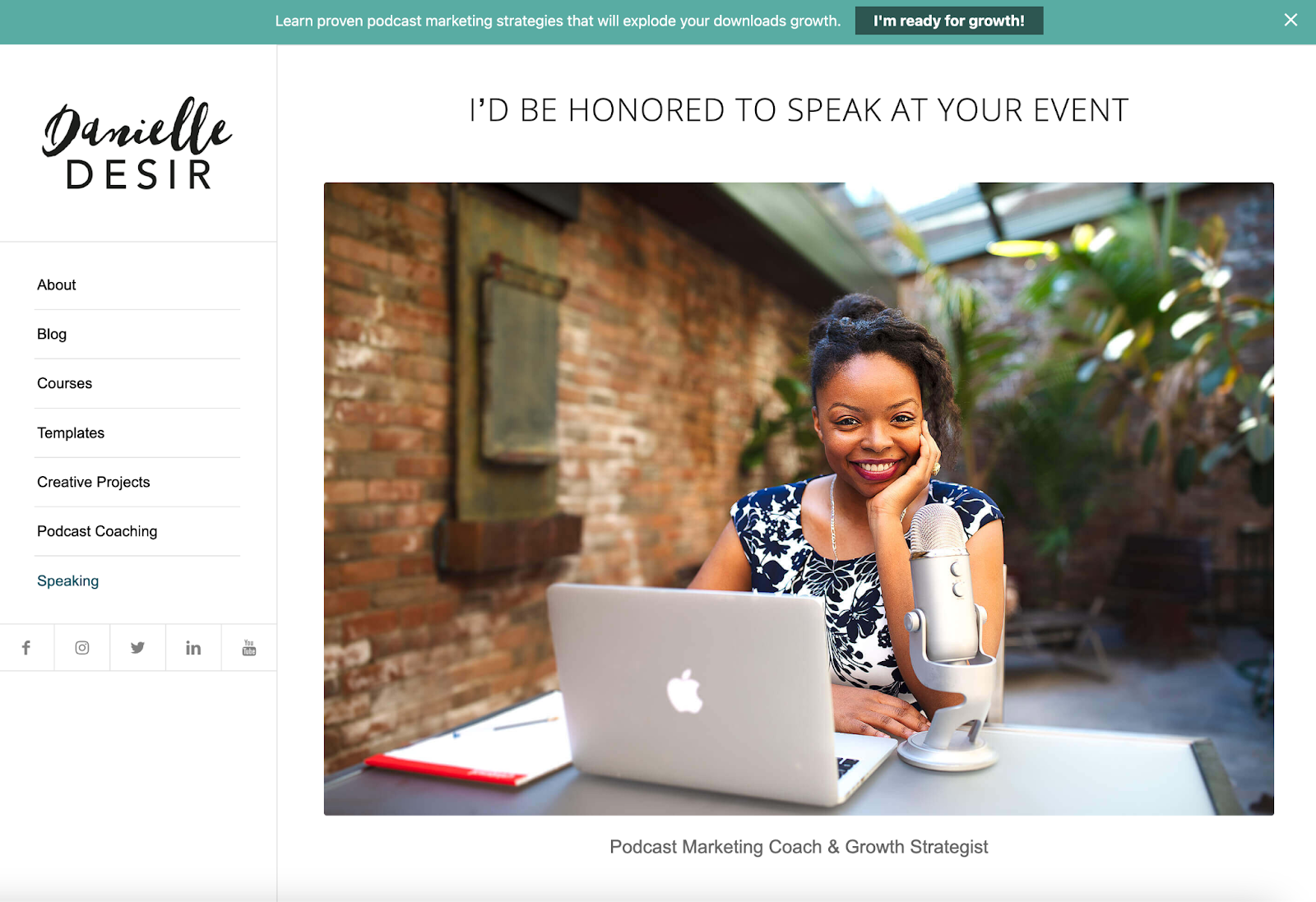 |
Create high-quality podcasts that make money with Descript
Of course, in order to monetize a podcast, you need to start a podcast. And Descript is the best podcast recording and editing software out there (I know, of course we’d say that).
You can make a podcast right in Descript, then edit as easily as editing a doc: just tweak the transcript, and Descript will edit the underlying audio to match. It can also automatically remove filler words like “um” and “uh,” polish up the audio in one click with Studio Sound, and even fix mistakes without re-recording thanks to AI voices.
Descript is easy to use, but just as powerful as other pro-grade tools used by popular podcasters and audio editors.
The best part: You can do all your podcasting tasks in Descript—recording, editing, adding music and sound effects, publishing your podcast to YouTube, or exporting the audio in your preferred format. No more switching between tools for post-production work.
Thousands of popular podcasts like Planet Money and Freakonomics Radio use Descript to produce their shows. Want to join them? See how Descript can help your own podcast.
Podcast monetization FAQ
How much money can you make from a podcast?
How much your podcast earns depends on several factors, including the audience size, niche, number of downloads, engagement, monetization method, and your rate. Established podcasters with millions of listeners and download numbers stand to make the most money, easily reaching seven figures. Lesser-known podcasters with a modest following can also earn a solid income. Using a combination of monetization methods could earn you substantially more than sticking with one strategy.
How much does a podcast with 1,000 listeners make?
A podcast with 1,000 listeners can make anything from $1 to a few hundred per month, depending on the niche and monetization techniques. Opportunities open around the 1,000 listener mark, and you can monetize successfully within a year of starting a new podcast. If you’re a subject matter expert in your industry and understand your audience’s needs and what they’re willing to pay for, you can develop and offer a product or service shortly after your launch.
Do podcasters get paid on Spotify?
No. Spotify doesn’t pay podcasters, but it offers podcast monetization tools, like ads (Spotify Ambassador Ads and Automated Ads), which pay across Spotify and other listening platforms where your podcast is distributed, podcast subscriptions, and direct listener support. You can choose the number and types of ads to include in your episodes and fan-support tools, but you can’t enable both at the same time. However, your podcast must be hosted on Spotify to use its monetization tools.



